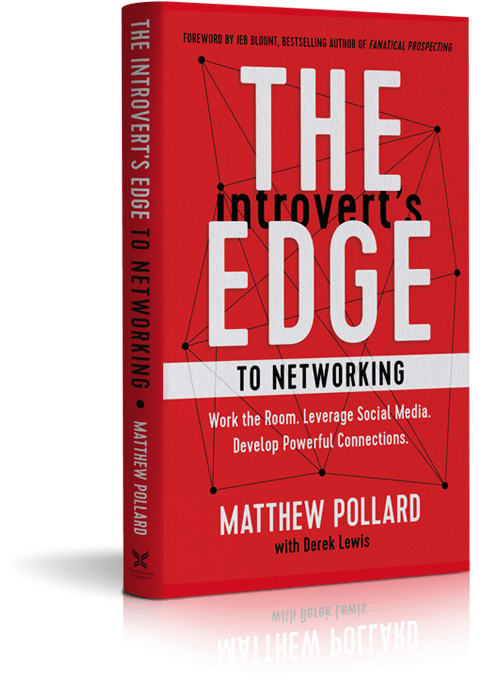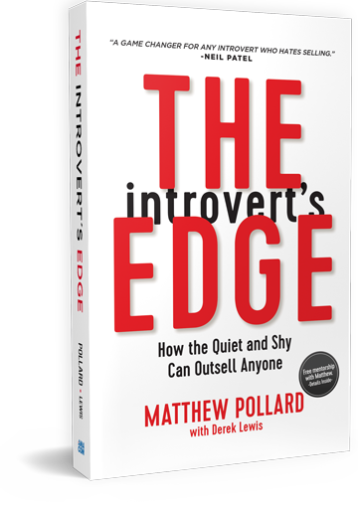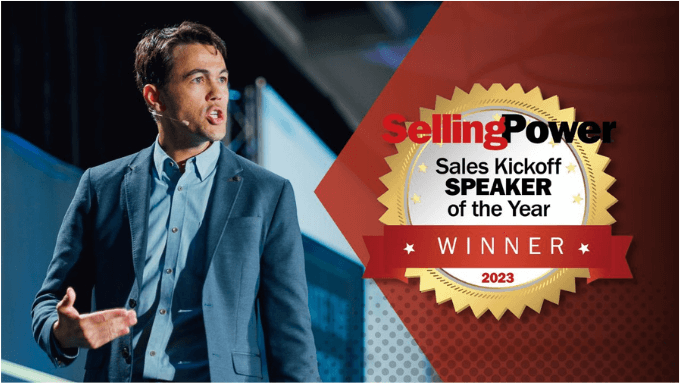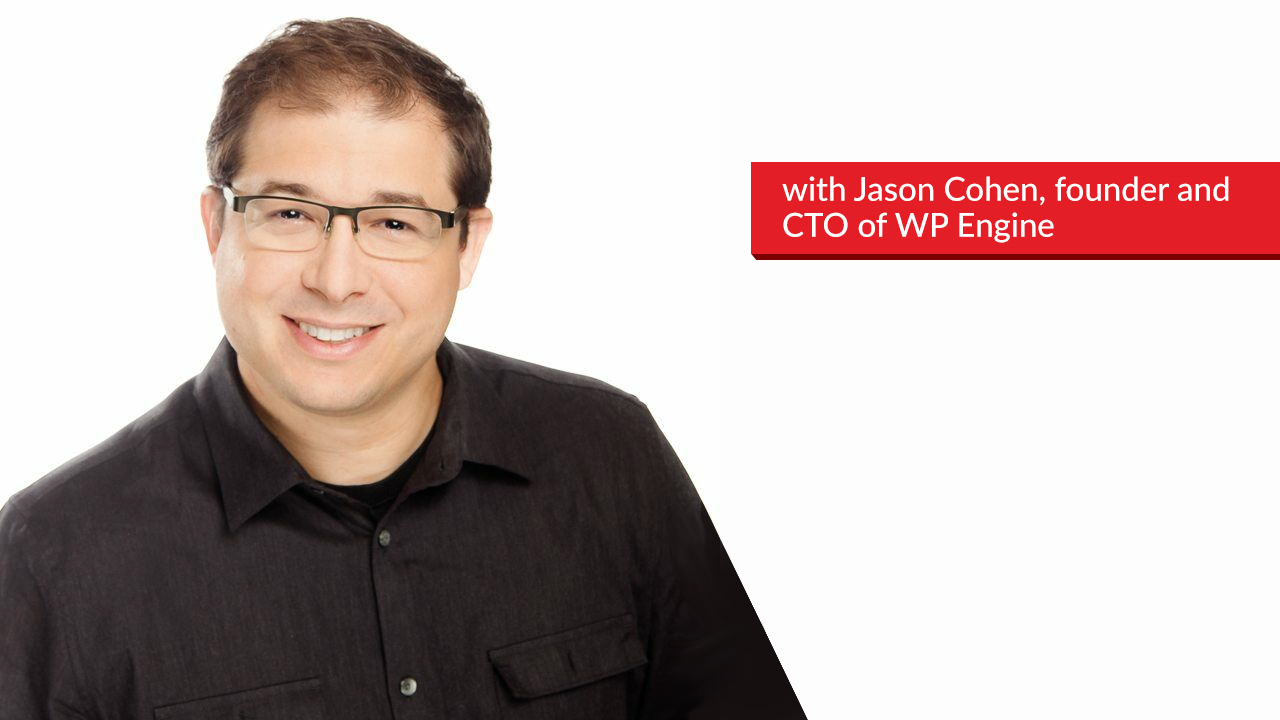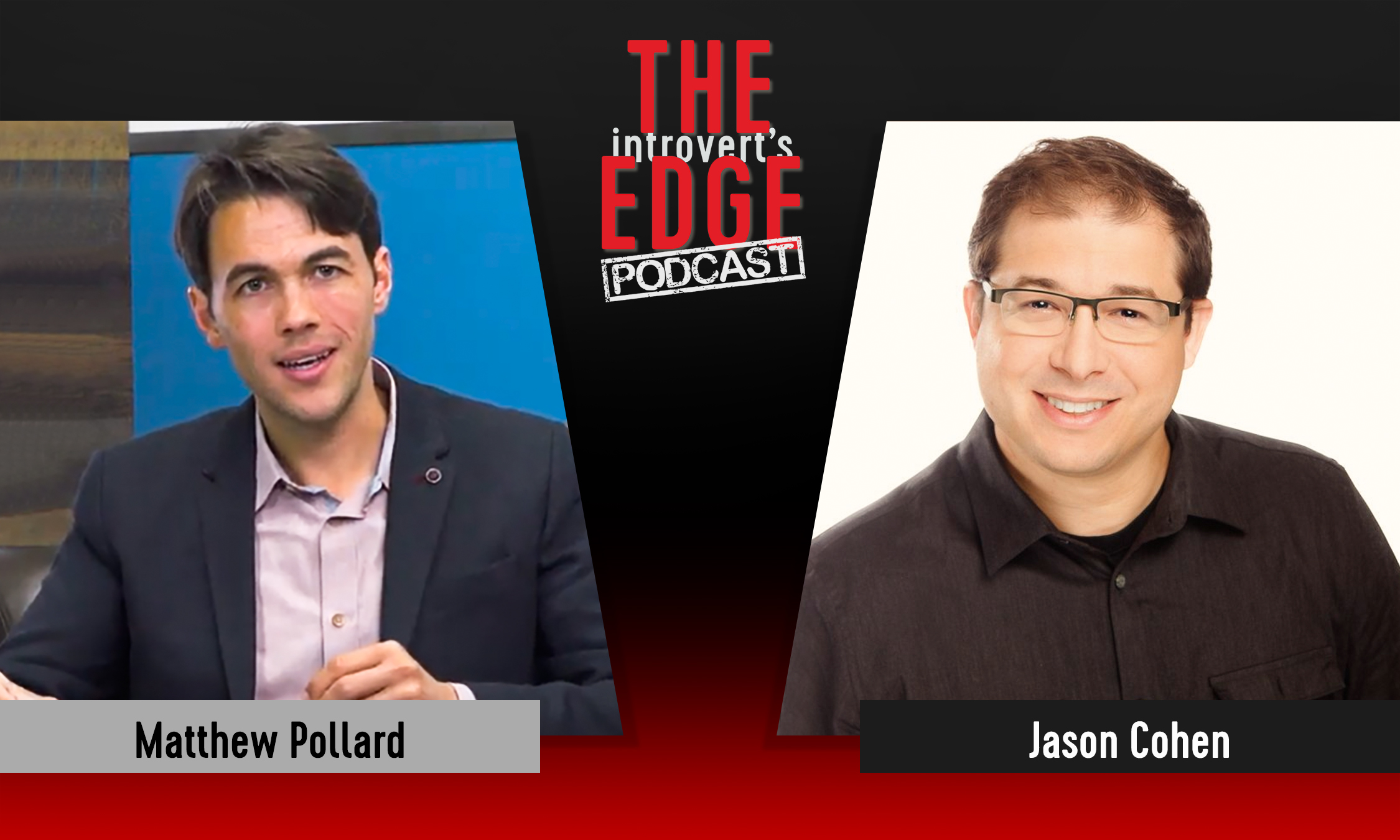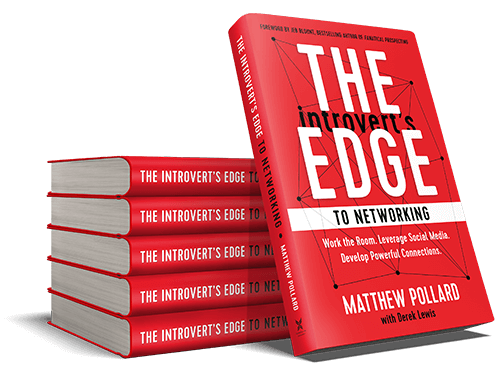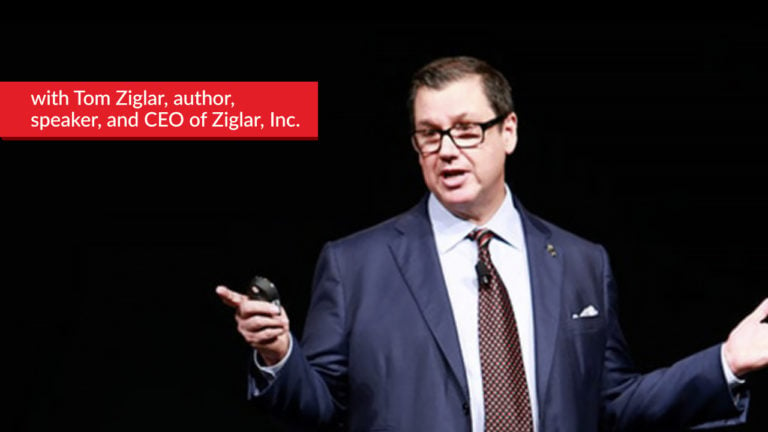Matthew:
The Introvert’s Edge Podcast was designed to create a dialogue around introversion,to stimulate a discussion around our disadvantages, how we overcome those disadvantages, and what we consider our introvert’s edge. Together we’re finally going to confront the stigma around introversion, showing that we’re not second class citizens. We’re just different, and we need to embrace that.
Hello everyone. And welcome back to The Introvert’s Edge. I’m ecstatic to introduce our next guest. Jason Cohen is the founder and CTO of WP Engine, a company that if you have a website you can’t not know about, he’s kind of taken the world by storm really, in a lot of ways. And yes, he’s another introverted success story.
So happy to have you, Jason, thank you for joining us.
Jason:
Thanks for having me.
Matthew:
Well, I’m excited to share your story because there’s a couple of things that are really interesting. I mean, the world of website hosting is really, really competitive and you’ve seemed to become one of those staples that people that know about websites say, “Well, you’ve got to use WP Engine,”. But also, you grew your business really quite quickly to about 50 to 70 employees. And then you’ve moved yourself to a CTO role and put another CEO in charge. So I think you’ve got some really unique stories to share.
And I’d really like to just start though from where it all started, and sort of how you got to where you are today. And maybe if you could just sort of embed it anywhere that introversion really played a factor in that.
Jason:
Well, I’ve always wanted to make companies and I’ve always had trouble having a regular job and having a regular boss. I’ve also always had side projects. I write code, or at least I used to before where we had almost 500 employees, and of courseI haven’t written code in years.
Matthew:
So that keeps you busy then.
Jason:
Yeah, of course. And so it’s relatively easy for makers to start something, especially nowadays there’s so many tools available depending on what it is you make and how it is you want to sell. There’s so much stuff available and you can sell to the whole world. So many people do, which is nice. In fact, that’s particularly good for introverts because without all those tools, the only way to sell something if you have to get up and sell. Whether that’s through a channel or direct, that’s still you interacting with people by definition.
That’s what sales is or sales requires. So the idea that you could go to an Etsy and not really interact with people and maybe sell something or have a website in which you’re selling something, maybe you wrote a book which is often a lonely enterprise, and then try to sell that online. These are all things that actually don’t require too much interaction, and yet you can go to a global audience.
Of course the problem is, so can everyone else. And so it’s very hard to compete for attention for those customers. So there is a kind of two edged sword to all that.
Matthew:
I really want to focus on, because there’s a lot of people that I’ve seen. I judge Google Startup Week and Angel Hack, and we tell them to go out and validate with the real world about whether or not their ideas are any good. And that’s like the biggest step for them. It’s like, I’ve got to go and speak to real people. I’d love to hear about when you came up with the idea of focusing on WP Engine and creating that. Do you go out and speak to real people before you put in all the work to build into it?
Jason:
Yeah. I talked to 50 people.
Matthew:
50 people?
Jason:
And actually that’s only because it worked. And in other words, it came out well. I had another idea and even a prototype for a different business, maybe six months prior. And I also talked to a lot of people, but that’s how I realized that wasn’t quite good. I wouldn’t say you validate your idea. Usually ideas are okay, pretty good. And any way, they’ll change.
What you’re trying to validate is whether it is a good business, and that means things like other people think the idea is good, and you can find them and you can get in front of them. And when they hit your homepage, you can say something where literally in three seconds they’ll decide to stay and find out more instead of bounce off. And then they’ll convert. And whether that means a trial where they bought something, whatever conversion means.And then especially if it’s a recurring revenue business, then they come back and buy.
Even if it’s not recurring revenue, you still want a fan that comes back and buys more stuff, maybe tells their friends. And at the right price, will they pay that price, is that easy? Is it not too expensive to get in front of them? All of these things are required. If those things aren’t true, even if it’s the best idea, it won’t work. So that’s what you’re really validating, which is why I think it’s important for people not to just talk about their ideas, but instead about these things like price and language. Half the thing of what you’re listening for is what language does the other person use to describe the problem or the features.
Because that’s the words you need on your homepage, not the language you have in your mind.People feel like, well, I have the pain myself is often how the idea comes, so therefore I’m like my customer. But that therefore is wrong because almost no one starts a company. So you’re not like your customer almost by definition. So you have to find out what the customer is actually like and so on. So this all requires being deep into the mind of the customer that requires a course interaction. You can’t not interact and do that. And also I say you don’t have to sell. What I really mean is you don’t have to sell as your full-time job, like what you do is be on the phone. But there is a lot of selling in startups, whether it’s the first employee they’re selling. They probably shouldn’t join, that’s probably not okay.
Matthew:
Then you’ve got to convince them that you’re worth the risk of not going to work for that company that is secure in hiring this.
Jason:
Yeah, and that there’s some other reason. In other words, I don’t really think people go through a risk calculation really, because if they did you shouldn’t do it. Almost always the answer is that the expected value is lower than just continuing your career somewhere at a company that has to pay more because there’s really no other reason to be there. So of course they’ll pay more. So there’s other reasons. I prefer this work. This is going to be fun. I like the people I’m working with. I get to solve interesting problems. I get to influence the whole organization, the customers, and so on. These are these reasons where maybe there’s a mission the company is on that you believe in. So even if the company were to fail, the fact that you tried to move this mission along was valuable to you.
There’s all these reasons that have nothing to do with risk reward that are really the reasons why people join. And so as the founder, you have to be able to articulate them because that’s how you’re going to sell someone on joining, or it’s a contractor or you’re raising money. Or the customers, they’re our customers. And even if you’re not selling by talking to them, the homepage is still selling, the whole website is selling and the product itself. So it is selling, it is convincing even if it doesn’t have to all be face-to-face. But there’s certain pieces of it like employees or investors, or sometimes customers tech support, for example, where of course by definition it’s interaction. But I think introversion does not mean you can not interact with people ever. That’s not the same thing.
So for example, I know a lot of introverts, and I’m this way, but I know other people that are where if I’m at a big party and it’s loud, bad. But if I can go to the back porch where it’s quiet and there’s only three people and we can have a conversation, then it’s good. Now still, sometimes I just need to be alone, fine, but that’s still a pretty decent environment. That’s not the whole hubbub. So I don’t think it’s a black and white, like I’m either alone or with a hundred people. And I also think a lot of introverts are forced extroverts. Meaning you can force yourself to be extroverted a bit or act that way a bit. And that can be fun. In other words, that party we were in the back and they have a different conversation that can be fulfilling even for an introvert. You don’t want to do that every single night, but doing that never versus doing it every single night. Again, this is not a binary choice. There’s middle grounds.
So I think, especially when you’re thinking about things like should I force myself to go to a party. Well, that may or may not be the right question. Maybe the right question is, what am I trying to get out of this? Or what am I trying to do? What am I trying to accomplish? If I’m just forcing myself because there’s some vague notion of I should, it’s good for me like broccoli. That’s probably a bad reason. Don’t because you’re not going to get a lot of value out of it. Your heart’s not in it. You in fact will not get the value out of it that an extrovert might by meeting people. You’re not going to meet that many people because that’s not what you’re going to do.
On the other hand, you could say there’s a few people there that I want to talk to. My goal is to go in and have conversations with just them. That may be an interesting middle ground, not every night, but sometimes that’s useful to you. There’s a reason you’re trying to talk to these folks and you can zero in. Or I do need to go network because of something or other, but I’m going to save up. I’m going to have a quiet night before and after, for example. So I have the energy to do it, and then I’m gonna do that energy. But again, why? Because I have a goal. So that’s why I’m doing it and I’m going to save up. And how you do that. That depends on the individual, right? There’s not a rule that these, but these are various things that might help. So the point is to have the actual goal. Let’s say you want to start a company and the goal is validation. Like you’re saying, that’s what I want to do. I don’t want to talk to 50 people, but I want a company more than I don’t want to talk to 50 people. Now that’s a reason to sort of get over it and do it.
Matthew:
Definitely. And I think that introverts especially have to have a ‘why’ for doing those things. I was talking to Ryan Deiss, who we both know well, and he talked about, I didn’t want to be the head of my company but I knew I had to be at the start, and then I could put people in charge later. And his ‘why’ was so much stronger than his terror of doing all the things that he didn’t want to do. But, I’m just imagining a person that wants to be a founder like you, whether it be a tech business or an Etsy business, and they want to go out and do this validation. It may not be the fact that they’re not willing to do it, but maybe they don’t know how to ask the right questions, how they actually reach out to speak to people to do that validation.
I’d love for you to just share with us and talk us through how you went about validating the idea that you didn’t go with, and then validating the idea that you did go with, and maybe explain perhaps some of the difference in responses.
Jason:
Well validating stuff is, that’s a whole, you could write a book. Well, I guess people have written a book about that. So I’ll rapid fire give you some things that I think are true for this particular thing. And I don’t think it has anything to do with introversion, by the way, this is just what to do for this.
So first of all, people often go into these trying to sell. In other words, you want your idea to be validated. Of course you do, it’s your idea.
Matthew:
You’re very attached to it.
Jason:
Of course, of course. And also of course, the whole point is to do just the opposite, to try to shoot holes in it so that you can actually learn. Because if you just validate what you know, by definition you haven’t learned anything. And the whole point is to learn the truth about the market, your customers, how they think, what their problems are, what they value, what they pay. The whole point is to learn those things, and so if you’re selling and validating a positive, then by definition, you’re not doing that.
So people will go in and sell for 45 minutes, essentially. And at the end of the conversation, the customer is like, I guess that sounds pretty good. Well it better be, because you just had a halfway decent idea and you just talk to them for 45 minutes. Like if that didn’t work, I don’t know what, but this is all wrong. But this is typically what happens. So then you hear people come by and say, “Look, I talked to five people and they all thought it was a pretty good idea.” And to them, that’s validation.
So here’s what you do instead. Like a scientist, you have to have theories, and then you see if they’re true. So you literally write down the theories that you think are true. And I did this. So I’d write down things like, I think a digital agency manages many, many websites, like more than 20, typically. I also think they have a problem keeping all the usernames and passwords, it’s either in a document and insecure or something and it’s annoying or hard or something. I also think that they tell their clients what web hosts to use, so that therefore if they like us then they would just drag us into deals. Whatever, just all of these very specific theories.
So then you can say, all right, what would I ask that does not lead the witness, but is open-ended, not yes/not. Not open-ended that would lead the witness, open-Ended that would validate or invalidate the theory. For example, how many websites do you manage? Not, do you manage more than 20. Yes/No. See, that’s leading and binary. How many websites do you manage? Maybe they say, Oh, I don’t even manage websites and make apps. Like open-ended questions, allow new things to come to light as well. Then the dimension that you had a theory on what do you do to manage those passwords, how does your client decide what web hosts to use? See, these are open-ended questions that allow us to figure out.
Matthew:
Really detailed responses.
Jason:
Yeah. Well, because some of your theories will be true and validated for real. Wonderful. Or tweaked. The average is actually 15 not 20, but yeah. Some of course will be wrong. And now you’ll know the truth because you had an open-ended and not just that it’s no.
And of course, there’s the third category, just stuff you didn’t think of in the first place that arose because it was open-ended
Matthew:
Which become features, perhaps, in whatever you’re doing.
Jason:
And the other thing they do is turn into new theories. This isn’t static. Once you realize this is wrong or this is new, you change. Okay. Well now I think this is the theory, I’ve heard these new things which is really interesting, so now I think… Of course you evolve those things as you’re hearing. And eventually what you should, if things are good, if you’re on the right track, like it was with WP Engine, what happens is the conversations start to become the same. They get boring because you know what they’re going to say, because that’s how well you understand the customer.
Matthew:
It’s almost like they could play an audio tape to respond to the answers.
Jason:
They’re either going to say this or that, and depending on that, they’re going to say this or that. That’s a good thing. Boring means you’re no longer learning, which means you’ve got something. And now continuing to do this is not helpful because you’re not adding information. Now you’ve got to actually act and there will still be surprises. You won’t be exactly right, but it’s time to do something else
Matthew:
You can now build it into a system, right? You’ve now created a website with the right messaging because you know what they’re thinking,
Jason:
Maybe. But you’ll be wrong again. It’s just that this particular way of doing it is no longer helping. You will now need to act and learn that way by A/B testing a website, by building a product by actually charging and seeing if they pay, which is different if they say they’ll pay. You have to do new things now for learning, this path is no longer helpful.
But as you asked, well that’s good if it worked, what about when it doesn’t work, what does that look like, because you do the same technique. So when it doesn’t work, the way it looks is you don’t get to that boring phase. This person says yes, this person says no to this thing. It’s not clear. So for example, in this other idea, no one could agree on the price. So one person would say, look, I would never pay for this for a regular site, but I would totally use it for free. And then if I got value out of it, and I saw that and I went over some limit, then I would probably pay $20 a month. And the next person would say, oh yeah, small business will never use this, but enterprise would love it. You need to charge $20,000 a month plus, you need to sell it through agencies that will bring it in and you could rev share with them a little. And so everyone’s making money. That’s what you’ve got to do. That’s who’s going to love this. Then I talk to the next person and they say, absolutely, a small business ought to pay $49 a month because of whatever reason. The next one said, advertisers would love this but not marketers because blah, blah, blah, blah, blah.
Matthew:
So you would have been forced into scattershot marketing if you hadn’t done the whole idea.
Jason:
The point is, it’s not an idea. It’s not a business because it was unclear who and why, and what does it cost and why would they buy it? It’s not clear, it’s divergent. So that means you’re not alighting on a truth that seems, “universal” is a strong word, but universal enough that, wow, there must be a market for this, there’s enough people who say this one thing.
So the other idea, maybe it was good if you had selected one of those paths. And then again, tried to get more customers in that path and see that could have been another way instead. I just thought, well clearly there are some good ideas because everyone thought it was interesting, but it’s not coalescing. This sounds too hard. It feels too hard. I’m going to move on. And again, that’s why I really feel like it’s not validating the idea. I had a good idea. Yeah. It’s validating the business.
Matthew:
That makes perfect sense. And thank you for sharing that, Jason. I think a lot of people really struggle with asking those questions and it can feel like selling because you’re trying to share somebody your idea, and you’re kind of emotionally invested in it because it’s your idea. How did you disconnect from wanting the successful outcome?
Jason:
So first of all, when you hear how I listed those theories, the idea wasn’t in there. I didn’t ask them about features. I’m trying to figure out what’s their world like, what would they pay for the end? You can ask, would you pay to make this go away, or if you have this feature, would that solve this thing? You could ask that. How you disconnect is this. If your idea is not awesome, because let’s put it this way, startups are always trying to die like an infant. It’s always about to die. And usually they do, they succeed in committing suicide. And so you want a lot of things to be right at the beginning because there’s so many other ways to die. Anyway, you’ve got to stack the deck a little bit.
Matthew:
You kind of want to feel like you’ve captured lightning in a bottle and you want to be proven that you’ve caught light in the water.
Jason:
You want to know there’s at least 50 customers because I talked to them, and they’ll definitely pay $50-$100. I don’t know exactly, but like that’s the range. I mean, these are all variables that if they’re not going to work, it’s going to feel, I got to at least have some of these variables solved because there’s still the other 40 that might and probably will sink the company. I’ve got to get some things.
So if you go in and you’re not honestly trying to find those things, it is going to fail anyway, that is what’s going to happen. And you will have wasted a year or two instead of wasting a month or two. So you have to do this so that you find out sooner, because you’re going to find out, there’s no doubt. You’re going to find out that will happen. How much of your life are you going to waste .
Matthew:
How much money are you going to spend?
Jason:
Well, in lifespan, you’re not getting younger. Every single year that you’re living is the best year you’re going to have in terms of your ability and energy. So you don’t have that time to waste. That’s the one thing, even if you do or don’t have money, but we all definitely don’t have extra time.
Matthew:
Definitely. And I think that’s really great advice because a lot of people listening might be thinking it’s painful to get told no, and I’m going to defend my idea. You actually want them to defend them saying yes that they want it because you’re about to invest all this time, all this money into building something that you think they want. And it’s horrible to find out later to get the rejection once you’ve built it,
Jason:
It’s so much worse. That’s also why you can’t talk to friends about it.
Matthew:
So who did you speak to, who did you seek out to ask these questions and how did you reach out to them?
Jason:
Well by the time I did WP Engine, I had done some startups and I was blogging, and so I knew a lot of people. And so it was not too hard for me to get in front of people. But let me share this technique which I also use, but where I was not leveraging maybe an audience that I built. I wanted to find out what we should build for freelancers specifically. And so what I did is I went to LinkedIn and it’s very easy to find freelancers because they want to be found ,that’s how they get business and so it’s easy to find them in LinkedIn. There’s a lot of roles at companies and things that are easy to find on LinkedIn based on title and whatnot. So I would send them an InMail that said I’m trying to do some research on this topic because I’m trying to build a tool for people like you. And now here’s the key, I said, but I know that you trade time for money and I value that and I’m not trying to get free advice. I genuinely value your opinion and therefore I’m willing to pay whatever you would like to charge for one hour of your time for this. And the result is almost everyone said, “Oh, I’m happy to do it for free.” Why? Because it’s weird to charge someone for one hour. And what I did by that is show that I respect them and their time and not trying to mooch off to them, not picking their brain, all this nonsense that is actually disrespectful. I’ve just proven that I actually respect, I actually want to know, I’m not trying to take advantage of them by offering that. But the reciprocity is very few people ask. So something like two people out of 50 actually quoted me something. So then I talked to the other people, I just didn’t talk to them. Or you could pay whatever, right? There’s different avenues, but that’s what happens. And of course there’s ways other than LinkedIn, it’s just an example that pretty much anyone can try.
Matthew:
No, I think that works. And you know, I get people all the time sending me an email saying, can I just buy you a coffee or can I pick your brain for 15-20 minutes. And it happens 3-4 times a day and I can’t speak to all of them and no one’s ever tried that technique with me. I would have totally done it for free. So everyone watching, please, don’t just all of a sudden hammer my inbox. You’re so right because those questions, “Can I just pick your brain?” I mean, I created Small Business Festival – which you gave your time to speak at – because I want to help people. It’s not that I don’t, it’s just that you only have a certain number of hours in your day. And for somebody that says, “Hey, I value you. I respect your time, but I want this. And if you want me to pay, I’ll pay”, I would have totally been open to that. So, yeah,
Jason:
There’s a lot of ways. I mean, the general thing is you got to give something, too, it shouldn’t be a one-way thing. And then you’re probably asking someone that has no time. So that’s a bad combination. So one way is maybe you probably do have something to offer. “Hey, you know, I noticed that you do blah, blah, blah, blah. I know a few people here I’ve, I’ve just sent intros to them already. Also I’d like to have coffee”, like just do it already, don’t trade, just get into it. That’s interesting. Or maybe you have data, I’ve already done 10 customer interviews, “I found some interesting stuff. I’d love to share just because it’s fascinating, but it’s still a puzzle. And so I’d like to meet and talk about blah, blah, blah, blah.” That actually is kind of neat to get some new insight to something. That could be a gift, some knowledge. But another one is just being respectful at all. Like you’re saying, that’s not even a physical gift. And of course I definitely don’t mean it physically. Right? That’s something else altogether. Just give something like that.
Matthew:
That’s really great value. And Jason, I know a lot of people who build their idea for years in the garage or they build an online website and for years try it, and they’ve never actually spoken to real people. And a lot of times they’d find the 50 customers, just speaking to 50 potential people could have saved all that heartache. So I think that’s really powerful advice. I really thank you for sharing it.
Jason:
Here’s the converse, I can’t think of any startups that labored in secret for two years and then were successful when they launched. That’s not the startup story. That isn’t it.
Matthew:
Actually, I can’t think of anyone that hid it either.
Jason:
Maybe there is like, Oh, well there’s this one time. Well, there you go. Okay, one out of a hundred. Well, that’s terrible odds, therefore that’s not the way.
Matthew:
Yeah, no, I think that’s amazing advice and everybody that’s out there that is thinking about a new business idea, take this advice, please, because I’ve seen so many businesses fail. I’ve judged Angel Hack and we’ve voted against people because they haven’t done this validation, because we’re trying to avoid their heartache. If they’re not willing to go out and do this, they shouldn’t be in business for themselves. Because you think about it, you’ve got a family. If you had not validated, then it would’ve cost not just you, it would’ve cost everybody in your network, huge amounts of stress by you not doing that.
Jason:
There’s probably some negative feedback cycle. The more time you’ve spent sunk into it, the more you need it to work. And yet the less likely it is that it will work ,and you don’t want to give that up. And so there’s probably that negative feedback cycle.
Matthew:
Before you get too much sunk in cost, just call it quits. And look, that doesn’t mean you shouldn’t try your idea. It just means talk to some real people to make sure that the idea really does have legs and the business has legs.
Well, Jason, I want to ask you a thousand more questions. I know we’re getting to the end of this segment is especially around the fact that, you know, your trajectory from starting a company to making the decision to become the CTO instead of the CEO of your business. So we might pick that up in the next session, but I really thank you for joining me for this episode. I appreciate it.
And thank you for everyone that’s tuned in today. If you’re enjoying this episode, make sure you catch the second half at theintrovertsedge.com/Jason. And if you are enjoying this episode, please help us get this higher and higher in the iTunes charts so that we can make sure more introverts get access to this information and start becoming more successful in their businesses and in their lives. Please subscribe, post a review, share this with your friends so that we can start helping more people together. But thank you for joining me and I look forward to seeing you in the next one. Cheers.







